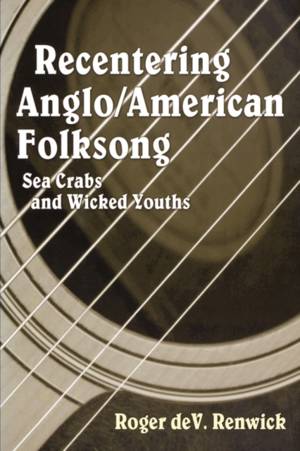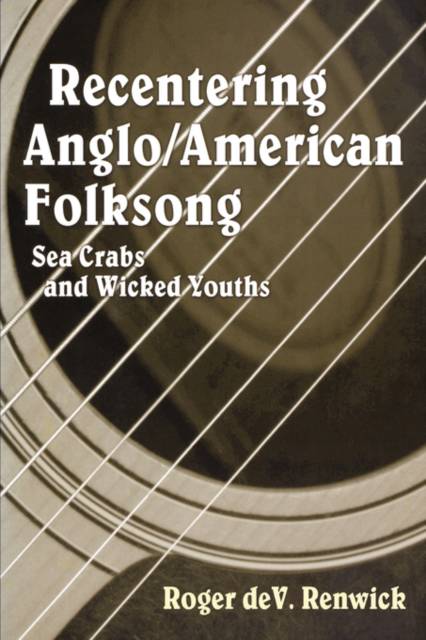
- Retrait gratuit dans votre magasin Club
- 7.000.000 titres dans notre catalogue
- Payer en toute sécurité
- Toujours un magasin près de chez vous
- Retrait gratuit dans votre magasin Club
- 7.000.0000 titres dans notre catalogue
- Payer en toute sécurité
- Toujours un magasin près de chez vous
Recentering Anglo/American Folksong
Sea Crabs and Wicked Youths
Roger Dev Renwick
Livre broché | Anglais
59,45 €
+ 118 points
Description
Recentering Anglo/American Folksong: Sea Crabs and Wicked Youths by Roger deV. Renwick. A wealth of texts of British and Anglo/North American folksong has long been accessible in both published and archival sources. For two centuries these texts have energized scholarship. Yet in the past three decades this material has languished, as literary theory has held sway over textual study. In this crusading book Roger deV. Renwick argues that the business of folksong scholars is to explain folksong. Folklorists must liberate the material's own voice rather than impose theories that are personally compelling or appealing. To that end, Renwick presents a case study in each of the five essays to demonstrate the scholarly value of approaching this material through close readings and comparative analysis. In the first, on British traditional ballads in the West Indies, he shows how even the best of folklorists can produce an unconvincing study when theory is overvalued and texts are slighted. In the second he navigates the many manifestations of a single Anglo/American ballad, "The Rambling Boy," to reveal striking differences between a British diasporic strain on the one hand and a southern American, post-Civil War strain on the other. The third essay treats the poetics of a very old, extremely widespread, but never before formalized trans-Atlantic genre, the catalogue. Next is Renwick's claim that recentering folksong studies in our rich textual data banks requires that canonical items be identified accurately. He argues that "Oh, Willie," a song thought to be a simple variety of "Butcher's Boy," is in fact a distinct composition. In the final essay Renwick looks at the widespread popularity of "The Crabfish," sung today throughout the English-speaking world but with roots in a naughty tale found in both continental Europe and Asia. With such specific case studies as these Renwick justifies his argument that the basic tenets of folklore textual scholarship continue to yield new insights. Roger deV. Renwick is a professor of English at the University of Texas at Austin.
Spécifications
Parties prenantes
- Auteur(s) :
- Editeur:
Contenu
- Nombre de pages :
- 183
- Langue:
- Anglais
Caractéristiques
- EAN:
- 9781604732542
- Date de parution :
- 17-12-01
- Format:
- Livre broché
- Format numérique:
- Trade paperback (VS)
- Dimensions :
- 152 mm x 229 mm
- Poids :
- 299 g

Les avis
Nous publions uniquement les avis qui respectent les conditions requises. Consultez nos conditions pour les avis.






